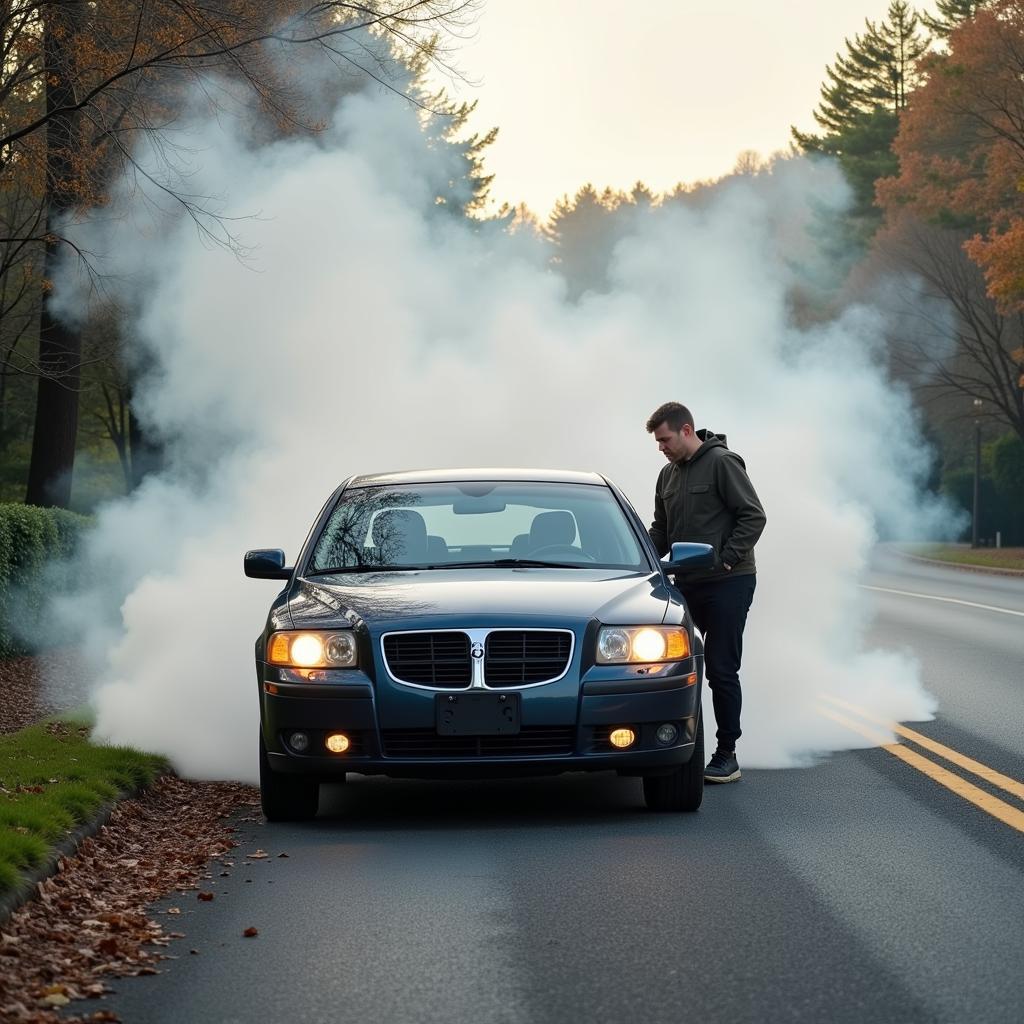Leaving water bottles in a hot car is a common practice, but is it safe? Many wonder about the potential dangers of chemicals leaching from plastic when heated, and rightfully so. This article delves into the science behind these concerns, exploring whether water bottles heated in the car are truly a problem.
Understanding the Risks of Heated Plastic Water Bottles
The primary concern regarding water bottles heated in the car revolves around the potential for chemicals, like Bisphenol A (BPA) and phthalates, to leach into the water. These chemicals are used in the production of some plastics and have been linked to potential health problems in some studies. While many manufacturers have moved away from using BPA in water bottles, older bottles or those made with certain types of plastic might still contain it. So, is the heat from a parked car enough to cause these chemicals to leach?
Is Heat the Culprit? How Temperature Affects Plastic
Heat can accelerate the breakdown of plastic and increase the likelihood of chemical leaching. While a single instance of leaving a water bottle in a hot car might not cause significant leaching, repeated exposure to high temperatures can potentially pose a risk. The type of plastic also plays a crucial role. Some plastics are more heat-resistant than others.
Identifying Safe Plastics for Use in Cars
Look for water bottles made with plastics labeled as #1 (PET or PETE), #2 (HDPE), #4 (LDPE), or #5 (PP). These plastics are generally considered safe for storing water and are less likely to leach chemicals, even when heated. Avoid reusing single-use plastic bottles, especially those made from #1 plastic, as these are designed for one-time use and can degrade with repeated exposure to heat and washing.
Beyond Chemical Leaching: Other Concerns with Water Bottles Heated in the Car
While chemical leaching is a primary concern, other problems can arise from leaving water bottles in a hot car. Bacterial growth can be accelerated in warm water, especially if the bottle has already been opened and partially consumed. The heat can also cause the plastic to warp or degrade, affecting the structural integrity of the bottle and potentially leading to leaks.
Bacterial Growth in Warm Water: A Hidden Danger
Leaving a water bottle in a hot car can create a breeding ground for bacteria. The warm, moist environment inside the bottle is ideal for bacterial growth, particularly if the bottle has already been opened. Drinking from a contaminated water bottle can lead to various health issues.
Plastic Degradation and Structural Integrity
Extreme heat can cause some plastics to become brittle and crack, leading to leaks and spills. This is particularly true for thinner, single-use plastic bottles. Repeated exposure to heat can also weaken the plastic over time, making it more susceptible to damage.
Best Practices for Storing Water in Your Car
To minimize the potential risks associated with water bottles heated in the car, follow these simple guidelines:
- Choose the Right Plastic: Opt for reusable water bottles made with #2 (HDPE), #4 (LDPE), or #5 (PP) plastic.
- Store in a Cooler: Keep your water bottle in a cooler or insulated bag, especially during hot weather.
- Avoid Direct Sunlight: Don’t leave your water bottle in direct sunlight on the dashboard or seats.
- Empty and Wash Regularly: Clean your reusable water bottle thoroughly with soap and water after each use.
- Replace Old Bottles: If your water bottle shows signs of wear and tear, replace it immediately.
“Leaving water bottles in hot cars is something I see all the time,” says John Miller, a seasoned automotive technician at a local repair shop. “People don’t realize the potential risks. Choosing the right type of plastic and storing your water bottle properly can make a big difference.”
In conclusion, while the occasional instance of leaving a water bottle in a hot car may not pose a significant threat, repeated exposure can potentially lead to chemical leaching, bacterial growth, and plastic degradation. Water bottles heated in the car is a problem that can be easily mitigated by following the guidelines outlined above. For any automotive concerns, feel free to reach out to AutoTipPro at +1 (641) 206-8880. Our office is located at 500 N St Mary’s St, San Antonio, TX 78205, United States. We’re here to help.





Leave a Reply